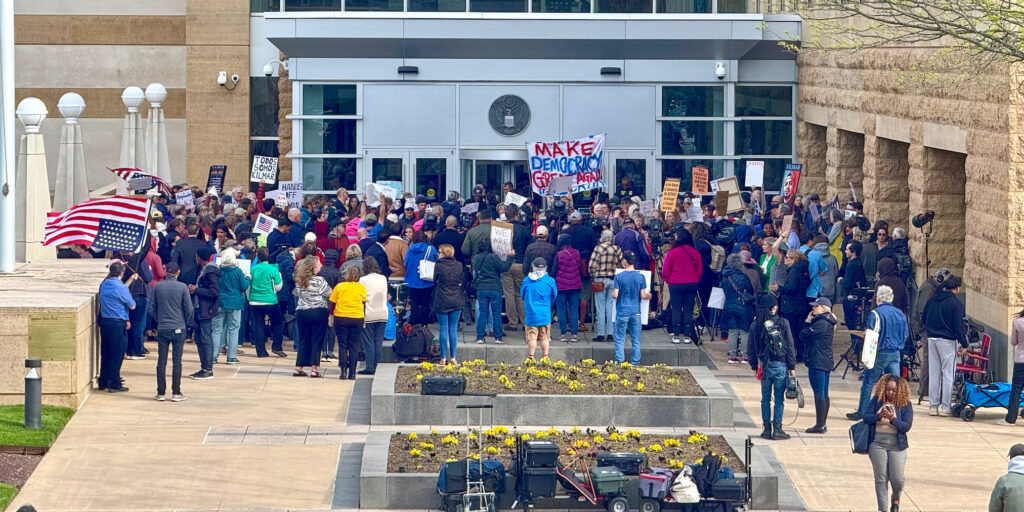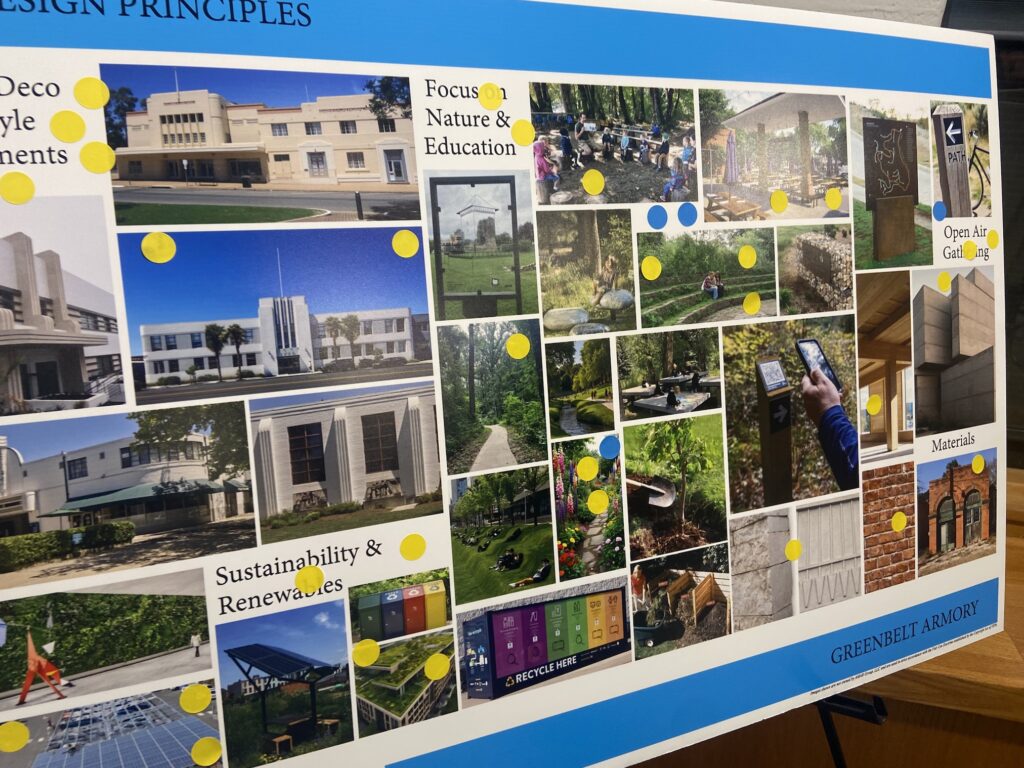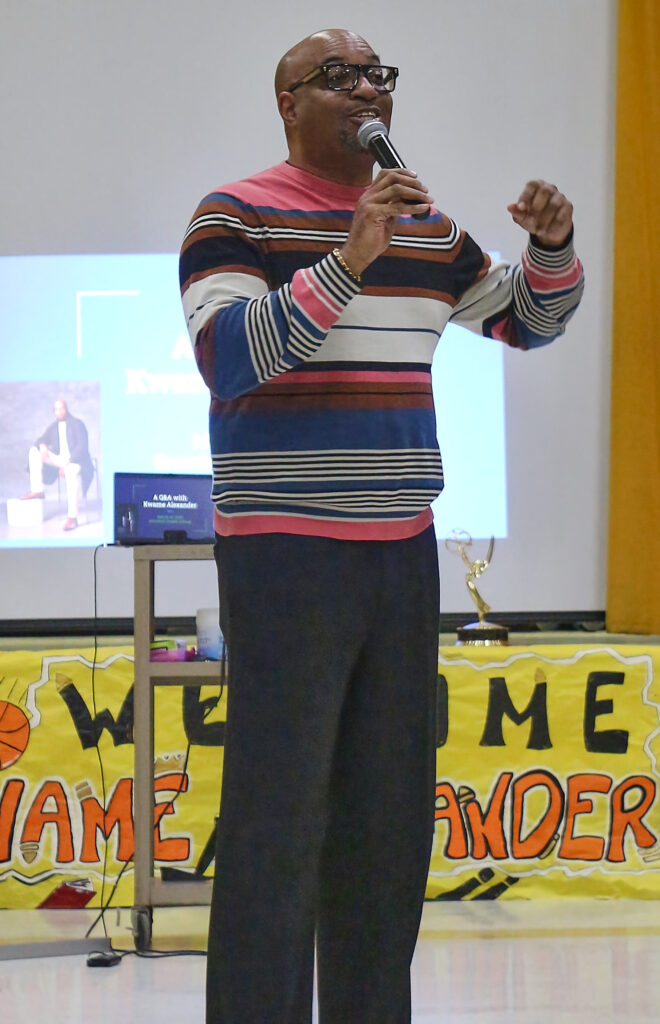At its September 26 regular meeting the Greenbelt City Council finalized the question to appear on the ballot for the November 7 council election and rejected a proposed second question. It also received an update from the City Board of Elections regarding voting procedures.
Noncitizen Voting
Voters will face just one advisory question on the 2023 election ballot. A second question, proposed by Councilmember Rodney Roberts regarding the recent charter amendment, was discussed but was rejected after a sometimes-contentious discussion.
First up was the question of who should vote in city elections. A resolution first introduced at the August 14 regular meeting was replaced with an alternate version that is now termed a “non-binding advisory question” rather than “referendum.” There was considerable discussion regarding the wording of the question posed to the voters, but in the end the original language was restored: “Should Greenbelt residents who meet residency requirements but are not U.S. citizens be allowed to vote in city elections?”
In a report to council, the Board of Elections identified several questions that council will need to decide upon if the advisory question passes including 1) how long a noncitizen must lawfully reside in Greenbelt to qualify, 2) how residents will prove they meet this requirement, 3) how often noncitizen residents will need to renew their registrations and 4) how noncitizen registration and voting will be administered. This report was not discussed at the council meeting.
Rick Ransom, co-chair of the Community Relations Advisory Board, noted that its report on the issue found that there are many residents who are not citizens but are legal residents of the United States.
Manager Residency
Roberts sought to add a referendum that would undo the charter amendment passed earlier this year allowing council to waive the residency requirement for city managers on a case-by-case basis and restore the original language that “during his tenure of office the City Manager shall reside within the city.” Because of the need to finalize the city ballot, this resolution needed to be passed that evening, after suspending the rule that resolutions need to be read at two meetings. His colleagues unanimously agreed to the suspension, but when it came time to vote on the actual resolution, Roberts stood alone, losing on a 6-1 vote.
City Solicitor Jason DeLoach said the proposed resolution was, procedurally, “a bit odd,” coming as it did after an attempt to petition the charter amendment to referendum had failed. Roberts disagreed, saying that the effort did not fail. He said that he had knocked on hundreds of doors collecting signatures and 95 percent of the people he encountered had signed and were adamant that the city manager should live in Greenbelt.
In order to petition a charter amendment to referendum, organizers must collect the signatures of 20 percent of the registered voters in the city. Roberts said that before the city started using the county voting rolls (as required by a change in state law), this was manageable. However, with the expanded voting rolls, he said, it is unreasonably hard to meet this threshold.
Roberts wanted his resolution to lead to a binding referendum, not an advisory question. He argued that this was not a legal question but a question of right or wrong. Before the unified voter rolls went into effect, Roberts said, the citizens had a right to petition charter amendments to referenda. Now, he argued, they no longer have that right. He called it ironic “that you would get two White women and two Black men” to vote to take peoples’ rights away, referring to the four councilmembers who had voted for the charter amendment.
This set off a considerable hubbub among his colleagues, with Gordon calling it “a very racist statement.” Roberts countered that what is racist is taking peoples’ votes away. The vote was taken shortly thereafter resulting in the 6-1 rout of Roberts’ resolution.
Board of Elections
Council accepted without discussion two reports from the City Board of Elections. The first relayed the results of that body’s review of newly appointed Councilmember Konrad Herling’s proof of residency and his acceptance of nomination to council. The board advised council that Herling’s paperwork met all election code requirements and Herling is eligible to serve on council.
The second was an update on the upcoming election. It stated that mail-in ballot applications would be mailed out that week with instructions in English and Spanish. The board expressed its confidence that the vendor “will perform its work in a timely manner and avoid the mail-in issues” experienced during the last election.
Early voting will be held only during the weekend before the election: November 4 and 5. Three polling places will be used with each open from 10 a.m. to 3 p.m.
All voters, whether voting early, by mail or on election day will mark the same paper ballots with no voting machines used. Voters may use any of the five polling places (Schrom Hills Park, Greenbriar, Springhill Lake Recreation Center, the police station and the Community Center) regardless of where in the city they live.



